Why Labor will double down on Indian migration
According to a 2022 survey conducted by the Carnegie Endowment for International Peace, Indian migrants much prefer Labor to the Coalition.
The survey suggested that in the 2022 federal election, Indian migrants voted 58:34 for Labor over the Coalition.
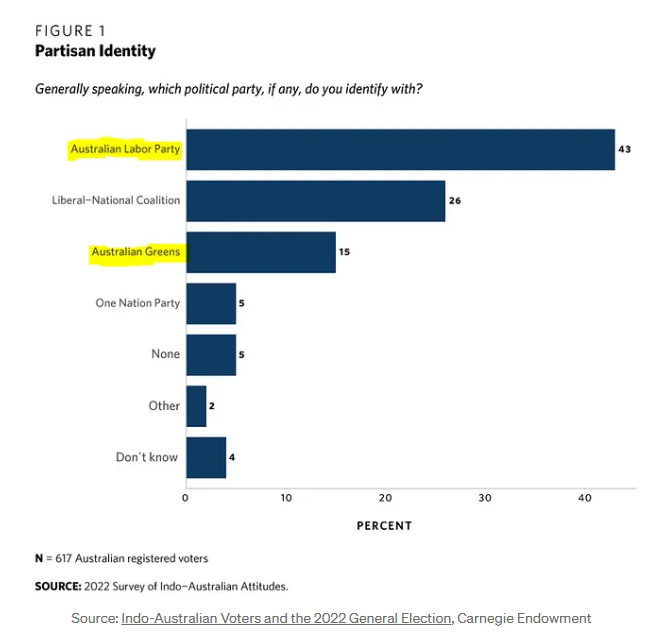
Chinese-Australians also appear to prefer Labor. The Tally Room discovered that in the 2022 federal election, practically all localities with more than 10% Chinese heritage voted for Labor.
In the months preceding this year’s election, the Albanese government was accused of engaging in a form of voter gerrymandering after pushing through 12,500 citizenship ceremonies in marginal seats.
Home Affairs Minister Tony Burke has been accused of “rushing through” citizenship applications in marginal seats and politicising citizenship for “partisan advantage,” by launching an unprecedented three-day blitz of ceremonies to welcome thosaunds of new Australians in electorates Labor is desperate to hold…
Liverpool Mayor Ned Mannoun also accused the Minister of “rushing through” citizenship in marginal seats…
“They have gone and rushed through citizenship applications for 700 people in Liverpool,” Mr Mannoun said.
“This is bulls**t.”
“They are stacking marginal seats better than Woolworths stacks shelves.”
The Albanese government’s election victory elicited joyous celebrations from the Indian community and migration agents, who understand that paths to immigration and permanent residency have improved.
Indeed, in its first term in office, the Albanese government signed two migration-related pacts with India, specifically designed to increase migration flows to Australia, namely:
- The Australia-India Migration and Mobility Partnership Agreement.
- The Mechanism for Mutual Recognition of Qualifications.
This month, the Albanese government announced that it has raised the planning level for international students by 25,000 to 295,000 for 2026. Labor also lowered English-language requirements, thus making it easier to obtain a visa.
Indian migration agents hailed Labor’s changes as “great news” on TikTok, as reported by Frank Chung at News.com.au.
“If you are planning to study in Australia, this news is for you”, one said. “Stay informed, stay ready. Things look very positive for international students moving forward”.
Another agent said the announcement “clearly shows that Australia remains committed to valuing international students and is focused on creating new opportunities for them”.
“This is the right time to apply for a student visa to Australia”, a third agent declared.
Given Indians overwhelmingly vote Labor, and they are now the largest source country for new migrants, the Albanese government has a direct incentive to maintain a high immigration policy as well as kowtow to India.
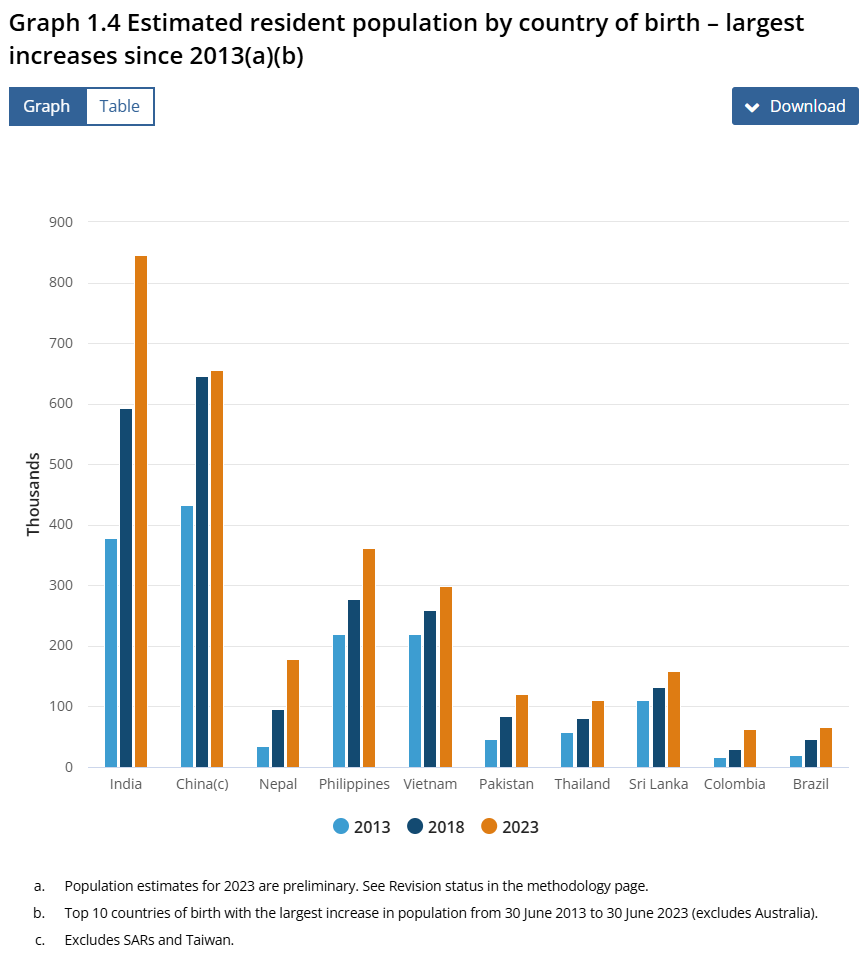
In fact, pollster Kos Samaris openly stated that 85% of the Indian diaspora voted for Labor at the recent federal election:
“85% of the Indian diaspora voted for the Labor party in the last election.”
Stunning admission. There are 916,330 Indian-born migrants in Australia right now.
They’re Australia’s largest largest source of migrants. This can drastically impacts electoral outcomes. https://t.co/ZSco51nwg2 pic.twitter.com/ZVu4afjcgC
— Jordan H Knight (@jhk_______) August 17, 2025
When you think about it, the situation is perfect for India. They get to relieve their own population pressures and increase their influence while earning billions in remittances from Australia.
India dominated the $US10.1 billion (circa $A15 billion) in net migrant remittance outflows from Australia in 2024.
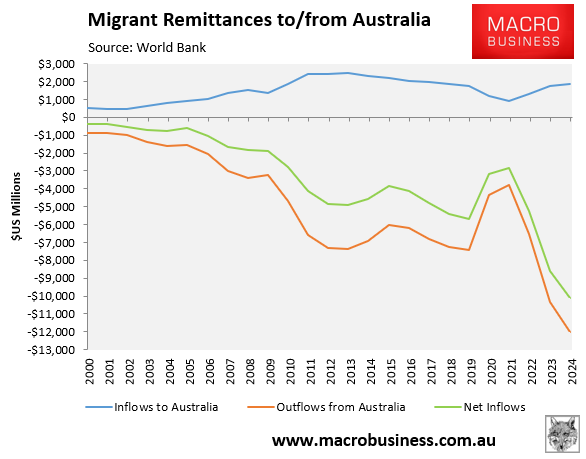
As illustrated below, net remittance outflows have closely tracked the volume of international students.
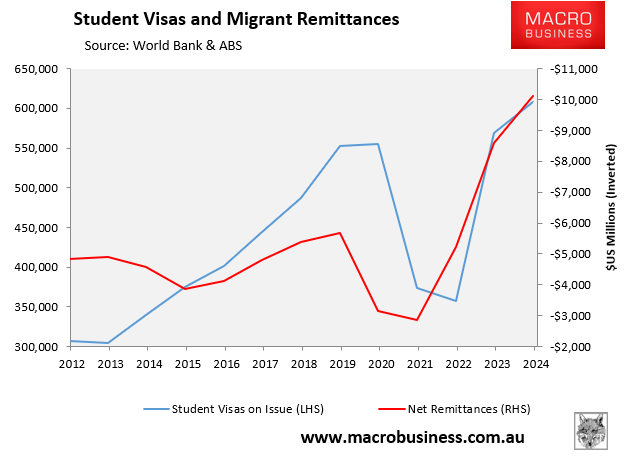
A report by Money Transfer Australia, which drew on data from the World Bank, ABS, KNOMAD, and DFAT, estimated that US$4.8 billion worth of remittances were sent to India from Australia in 2024.
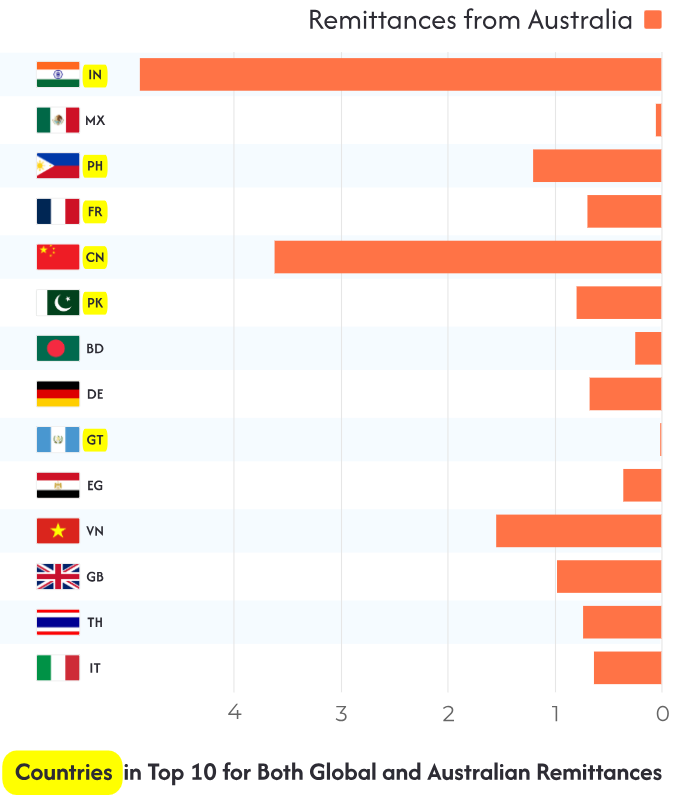
Source: Money Transfer Australia
“Money Transfer Australia’s report highlights that migrants from India are among the most active senders of money, despite the diversity of Australia’s overseas-born population”.
The Coalition has sabotaged its own political standing, considering that most Indian migrants that voted in the recent federal election arrived when it was in government.
The Coalition also signed the Australia-India Economic Cooperation and Trade Agreement (ECTA) late in its term, which made it easier for Indians to migrate to Australia.
The scary thing is that the large numbers of Indians that arrived in Australia in Labor’s first term cannot vote yet. But when they can, the electoral balance will be tilted even further in favour of Labor.
